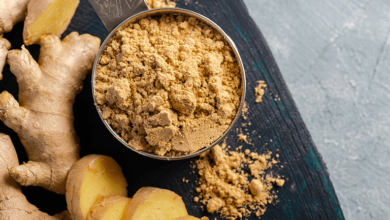Do you enjoy banana? happy now! listen very carefully…

Bananas are one of the most widely consumed fruits in the world, and for good reason. These yellow, crescent-shaped wonders have long been a staple in many people’s diets, offering a convenient and portable source of nutrition.
Banana However, the humble banana has also been the subject of ongoing debate and controversy within the health and wellness community. On one hand, are often lauded for their impressive nutrient profile, particularly their high potassium content. Potassium is an essential mineral that plays a vital role in maintaining healthy blood pressure, supporting heart function, and promoting proper muscle and nerve function.
In this regard, it can be considered a nutritional powerhouse, providing a readily available source of this important nutrient. On the other hand, have also been criticized for their relatively high sugar content. While the natural sugars found in bananas are generally considered healthier than the added sugars found in many processed foods, the fact remains that a single medium-sized can contain around 12 grams of sugar.

For individuals who are watching their carbohydrate or sugar intake, this can be a cause for concern. The debate around the health benefits of bananas has led to a range of conflicting opinions and recommendations. Some health experts suggest that it should be consumed in moderation, while others argue that they can be a valuable part of a balanced diet. The key, it seems, lies in finding the right balance and understanding one’s individual dietary needs and preferences.
Table of Contents
In this article, we’ll explore the various factors at play when it comes to the health implications of banana consumption. We’ll delve into the nutritional profile of bananas, examine the potential benefits and drawbacks, and provide guidance on how to incorporate them into a healthy, sustainable lifestyle. By the end, readers will have a better understanding of whether should be a regular part of their dietary routine.
Health Benefits of Bananas, are a versatile and nutrient-dense fruit that offer a wide range of health benefits. When incorporated into a balanced diet, consuming it on a regular basis can have a positive impact on your overall wellbeing. You May Increase Your Energy One of the primary advantages of eating bananas is their ability to provide a reliable source of energy.
Bananas are an excellent source of carbohydrates, which are the body’s primary fuel for producing energy. According to a 2019 article published in the Journal of Food Science and Technology, also contain a variety of B vitamins, including B3, B6, and B12. These essential nutrients play a crucial role in helping enzymes within the body convert the carbohydrates from it into usable energy.
It’s important to note that the energy-boosting benefits of bananas are best realized when they are consumed as part of a balanced meal or snack. Eating it on its own can cause a rapid spike and subsequent crash in blood sugar levels. To prevent this, it’s recommended to pair with a source of healthy fats or protein, such as a handful of nuts or a serving of Greek yogurt.
This combination helps to slow the digestion of the carbohydrates, providing a more sustained and stable energy release. You May Maintain a Healthy Weight In addition to their energy-boosting properties, bananas can also be beneficial for weight management.
When consumed as part of a balanced diet, the fiber and nutrients can help promote feelings of fullness and satisfaction, which may contribute to healthier eating patterns and a stable body weight.
The fiber in bananas, particularly the resistant starch found in unripe one, can also help regulate blood sugar levels and support digestive health, both of which are important factors in weight maintenance. Furthermore, are relatively low in calories compared to many other fruits, making them an excellent choice for those looking to incorporate more nutrient-dense foods into their diet without excessive caloric intake.

The combination of their satisfying fiber, complex carbohydrates, and various vitamins and minerals make bananas a versatile and health-promoting addition to any well-rounded eating plan. contribute to weight gain. While there is no evidence that bananas directly contribute to weight loss,
they are a convenient and readily available food option that can be easily incorporated into a nutritious eating pattern to lose weight. In fact, 2023 research published in Frontiers in Nutrition showed that increasing your fiber by consuming more fruits and vegetables was associated with greater weight loss success.
This is good news, considering a medium banana contributes 3 grams of fiber to your daily total—which brings us to our next benefit. You May Increase Your Fiber Intake According to the 2020-2025 Dietary Guidelines for Americans, more than 90% of women and 97% of men do not get the recommended daily amount of 28 to 34 g of fiber per day.
Medium-size bananas have about 3 g of fiber each. Fiber has many health benefits, including keeping you full longer. Pectin, a specific type of fiber found in bananas, can help your body eliminate waste more effectively.
As bananas ripen, they tend to lose some of their pectin content, so greener or slightly ripe are a better source of fiber than overripe , per a 2021 study published in the journal PLoS One. While it’s true that some high-calorie, high-fat foods can contribute to weight gain, not all foods should be painted with the same broad brush.
for example, are often unfairly maligned as a fattening fruit. However, the scientific evidence tells a different story. Contrary to popular belief, bananas do not directly contribute to weight gain. In fact, they can be a valuable addition to a weight loss plan. As a convenient and readily available food, bananas can be easily incorporated into a nutritious eating pattern.
Recent research, published in the prestigious Frontiers in Nutrition journal in 2023, found that increasing fiber intake from fruits and vegetables was associated with greater weight loss success. This is good news for banana lovers, as a medium-sized banana provides a solid 3 grams of fiber to your daily total. Speaking of fiber, this is one of the primary health benefits
According to the 2020-2025 Dietary Guidelines for Americans, the vast majority of adults, over 90% of women and 97% of men, fail to meet the recommended daily fiber intake of 28 to 34 grams. Bananas can help bridge this gap, with a medium-sized fruit containing around 3 grams of fiber.
Fiber is essential for maintaining a healthy digestive system, as it helps to keep you feeling full and satisfied, reducing the likelihood of overeating. One particular type of fiber found is called pectin. Pectin has been shown to aid in the body’s waste elimination processes, helping to keep things moving smoothly.
Interestingly, as bananas ripen, they tend to lose some of their pectin content. This means that greener or slightly ripe bananas are generally a better source of this beneficial fiber than their overripe counterparts, according to a 2021 study published in the journal PLoS One.
In summary, while some foods may contribute to weight gain, bananas are not one of them. In fact, this humble fruit can be a valuable ally in your weight loss journey, providing a convenient source of fiber and other important nutrients. By incorporating bananas into a balanced, nutrient-rich diet, you can enjoy their many health benefits while working towards your weight goals.
Dietary fiber, particularly a type called resistant starch, plays a crucial role in maintaining a healthy gut. Resistant starch acts as a prebiotic, which means it provides nourishment for the beneficial bacteria living in your digestive system. These gut microbes feed on the resistant starch, allowing them to thrive and multiply.
When your gut is populated with a thriving and diverse community of beneficial bacteria, it can have far-reaching positive effects on your overall health. A healthy gut microbiome is associated with lower levels of inflammation throughout the body,
which in turn reduces the risk of various chronic diseases, such as heart disease, type 2 diabetes, and certain cancers. Furthermore, the gut-brain connection is well-established, and a balanced gut microbiome can also contribute to better mental health, improved cognitive function, and enhanced mood.
The gut is often referred to as the “second brain” due to the complex network of nerves that connects it to the central nervous system.
By incorporating resistant starch-rich foods into your diet, such as cooked and cooled potatoes, green bananas, and certain types of whole grains, you can nourish your gut bacteria and support your overall health and wellbeing. Maintaining a diverse and thriving gut microbiome is an essential aspect of leading a healthy lifestyle.
How Many Bananas Should You Eat per Day? Bananas are a popular and nutritious fruit that are enjoyed by people all over the world. They are a good source of various vitamins, minerals, and dietary fiber, making them a healthy addition to one’s diet. However, it’s important to consume them in the right amounts to ensure you reap the maximum benefits without any potential drawbacks.
Now that you know bananas are nothing to fear, the question arises – how many should you eat per day? While there’s no one-size-fits-all rule, as the recommended intake can vary depending on factors like age, gender, activity level, and overall health, a general guideline is to stick to one to two bananas per day for most healthy adults.
Bananas are relatively high in carbohydrates, with a medium-sized containing around 27 grams of carbs. While carbs are an essential macronutrient that provide the body with energy, consuming them in excess can lead to blood sugar spikes and other issues.
To help maintain stable energy levels and prevent such problems, it’s advisable to eat bananas in combination with protein or healthy fats, such as nut butter, yogurt, or a handful of nuts.
It’s important to note that certain individuals may need to limit their banana intake due to specific health conditions. People with chronic kidney disease, for instance, should be mindful of their potassium intake, as bananas are high in this mineral. Excessive potassium can strain the kidneys and potentially lead to heart problems.

The National Institute of Diabetes and Digestive and Kidney Diseases (NIDDK) recommends that those with kidney disease limit their consumption of high-potassium foods like bananas. While the risk of consuming too many bananas to the point of causing health issues is relatively low for most people, it’s still something to be aware of.
Eating an extremely large number of bananas, potentially dozens, can lead to a condition called hyperkalemia, which is characterized by dangerously high levels of potassium in the body. This can cause serious complications, including heart rhythm disturbances and muscle weakness. In general, it’s best to approach it consumption, like any other food, with moderation and balance.
Incorporating bananas into a healthy, varied diet as part of an overall nutritious eating pattern can provide numerous benefits. As with any food, it’s important to listen to your body and adjust your intake accordingly based on your individual needs and preferences.
this are a rich source of carbohydrates, which are the primary macronutrient found in this fruit. Carbs occur mainly in the form of starch in unripe bananas and as sugars in ripe bananas. The carbohydrate composition of bananas undergoes a dramatic transformation during the ripening process.
The main component of unripe, green bananas is starch, which can make up as much as 80% of the fruit’s dry weight. This high starch content is what gives unripe bananas their firm, starchy texture. As a ripens, the starch is gradually converted into simpler sugars through enzymatic processes.
By the time is fully ripe, the starch content has diminished to less than 1%, and the fruit is now dominated by natural sugars. The most common types of sugars found in ripe, yellow are sucrose, fructose, and glucose. In a fully ripe banana, the total sugar content can reach more than 16% of the fruit’s fresh weight.
This high sugar content is what gives ripe bananas their sweet, appealing taste. Interestingly, have a relatively low glycemic index (GI) that ranges from 42 to 58, depending on their degree of ripeness. The glycemic index is a measure of how quickly the carbohydrates in a food are broken down and absorbed into the bloodstream, causing a rise in blood sugar levels.
high content of resistant starch and dietary fiber explains their low GI, as these components slow the digestion and absorption of the carbohydrates. Fibers Unripe bananas contain a high proportion of resistant starch, which is a type of starch that is not broken down and absorbed in the small intestine. Instead, this resistant starch passes through to the large intestine, where it is fermented by gut bacteria.
This fermentation process produces butyrate, a short-chain fatty acid that appears to have beneficial effects on gut health, including reducing inflammation and supporting the growth of beneficial gut microbiota. In addition to resistant starch, are also a good source of other types of dietary fiber, such as pectin.
These various fiber components contribute to the overall health benefits of incorporating bananas into a balanced diet, as they can promote feelings of fullness, support digestive function, and potentially reduce the risk of certain chronic diseases. Bananas are an incredibly nutritious fruit that offer a wide range of health benefits.
One of the key nutrients found in bananas is water-soluble vitamins and minerals. As bananas ripen, the proportion of these water-soluble compounds actually increases, making ripe an even more potent source of these essential nutrients. Potassium is one of the primary minerals found in bananas, and it plays a crucial role in heart health.
A diet high in potassium can help lower blood pressure in people with elevated levels, reducing the risk of heart disease and stroke. In fact, a single medium-sized banana can provide up to 12% of the recommended daily intake of potassium.
Bananas are also an excellent source of vitamin B6, with one medium banana containing up to 33% of the daily recommended value. Vitamin B6 is essential for a variety of bodily functions, including the metabolism of proteins, fats, and carbohydrates, as well as the production of red blood cells and the maintenance of a healthy immune system.
Additionally, bananas are a good source of vitamin C, an antioxidant that helps protect cells from damage and supports the immune system. While the vitamin C content is not as high as in some other fruits, such as citrus, bananas still provide a valuable source of this important nutrient. As bananas ripen, the proportion of pectin, a type of fiber, increases.
This is one of the main reasons why it become softer and more easily digestible as they age. Interestingly, unripe bananas contain a significant amount of resistant starch, which is a type of fiber that passes through the gut undigested, providing potential benefits for gut health and blood sugar regulation.
Overall, are a remarkable fruit that offer a unique blend of water-soluble vitamins, minerals, and fiber. Whether you enjoy them ripe or unripe, bananas can be a valuable addition to a healthy, balanced diet.




